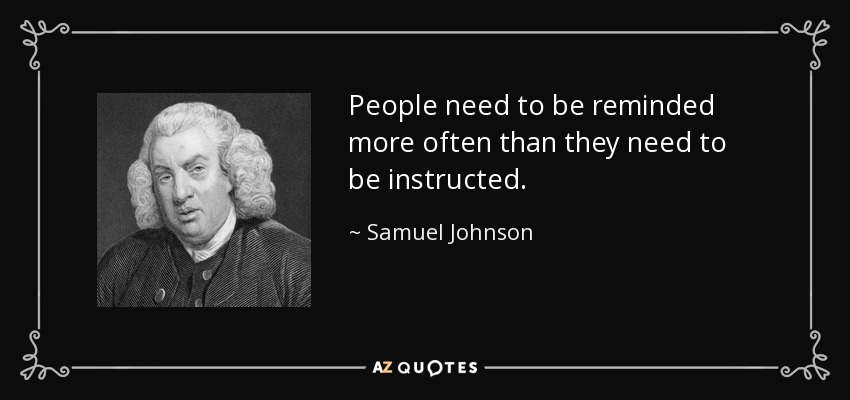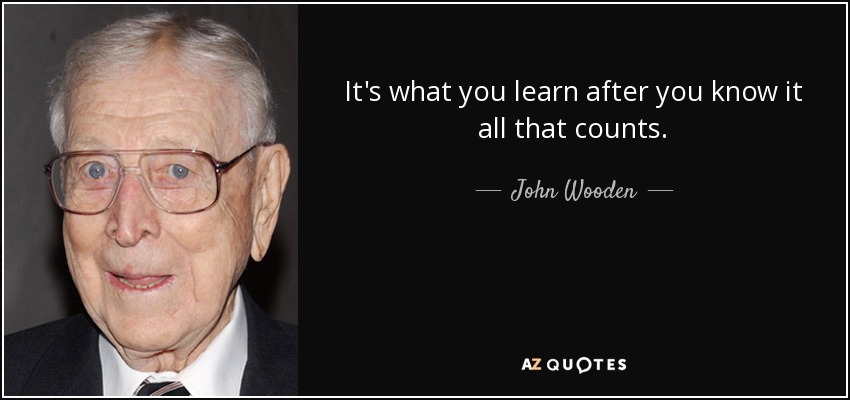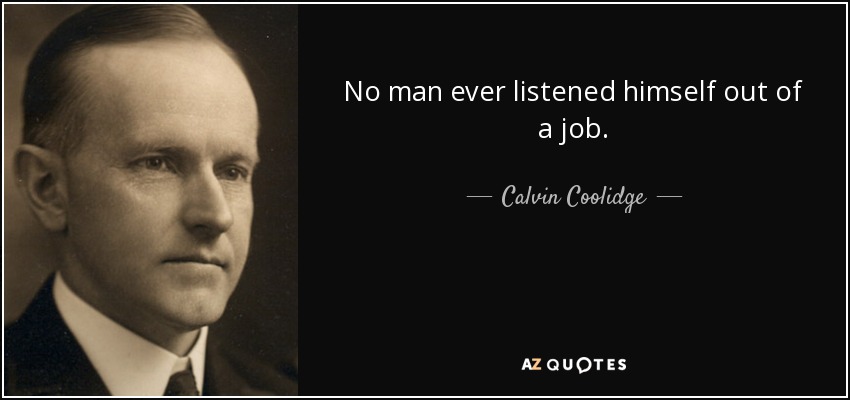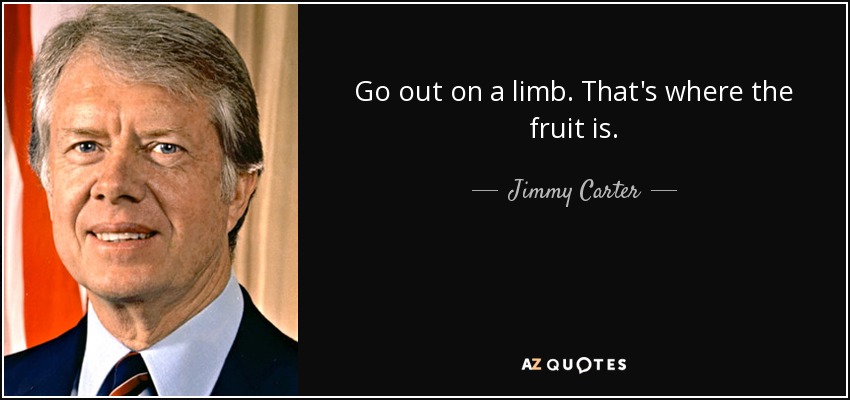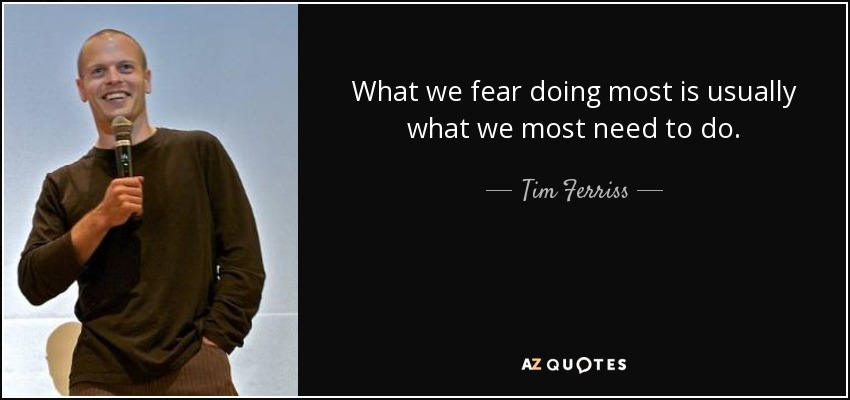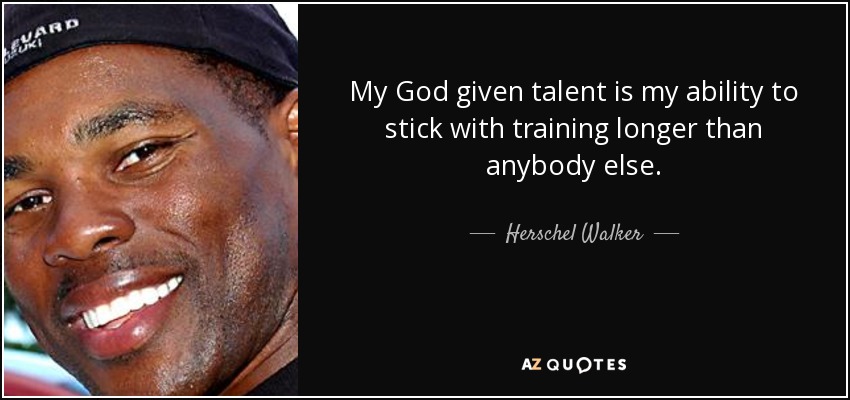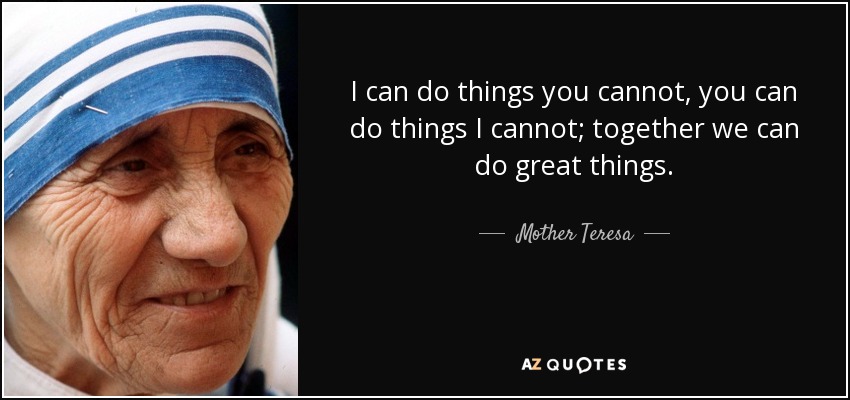Click here to return to Blog Post Intro
Leadership is More Than Hard Work; It is Habitual Work.
More than 40 percent of the actions people performed each day weren’t actual decisions, but habits. In other words, nearly half of your day will be determined by the patterns you’ve either intentionally created or passively allowed. Unfortunately, most people aren’t intentional about the habits they’re developing.
Humble
- Self-Discovery: Know who you are
- Openness: Share the real you with others
- Meekness: Remember it’s not about you
- Conviction: Stick to your principles
- Faith: Prioritize your day so God is first
- Assignment: Live out your calling
Hungry
- Ambition: Develop an appetite for what’s next
- Curiosity: Keep learning
- Passion: Love what you do
- Innovation: Stay current, creative, and engaged
- Inspiration: Nurture a vision for a better tomorrow
- Bravery: Take calculated risks
Hustle
- Excellence: Set standards that scare you
- Stick-with-it-ness: Take the long view
- Execution: Commit to completion
- Team Building: Create an environment that attracts and retains the best and brightest
- Partnership: Collaborate with colleagues and competitors
- Margin: Nurture healthier rhythms
- Generosity: Leave the world a better place
- Succession: Find power in passing the baton
Check out the twenty key habits that form Lomenick’s core leadership foundation.
HUMBLE: WHO ARE YOU?
Habit #1: Self-Discovery – Know Who You Are
Influencers should lead from the inside out so that their identity shapes their leadership rather than the other way around. As Jay Z said on Oprah’s Master Class, “Knowing who you are is the foundation for being great.”
Rick Warren says, “Be yourself. Don’t try to be somebody else. God made you for a purpose; he made you for a plan. There’s nobody who can be you except you.”
Adam Braun, founder of the innovative nonprofit Pencils of Promise, tweeted, “[Your] self-discovery begins where your comfort zone ends.” Self-discovery is not a practice you complete, but a posture you cultivate.
Schedule Regular Retreats. You need to calendar at least one retreat per year. These must be personal retreats where you focus on reflection and introspection.
Lead Yourself. Self-leadership is a constant process. Self-leadership turns into self-awareness. Knowing who you are means leading yourself first. Courage is required to lead yourself first and make yourself better. You can’t expect to pass on to your team what you don’t have.
Be More of Yourself. Stay true to who you are. Secure and self-aware leaders are confident and give confidence to others.
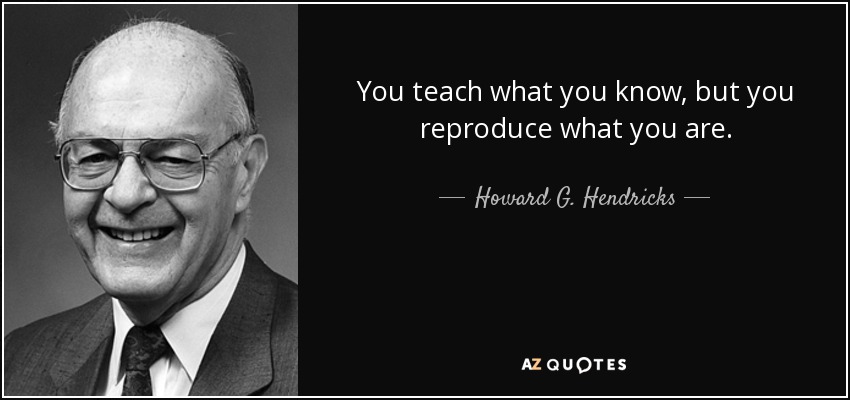
Who you are is not what you do. What you do is not who you are. Identity is unchanging. Being comes before doing. Who you are determines what you do.
3 Tips on Self-Discovery from Dave Lomas
Dave Lomas, Pastor of Reality San Francisco and author of The Truest Thing About You, offers these suggestions:
- Sabbathing: Lomas practices sabbath every week to remind him that his identity is not about how well he pastors or teaches but about being a child of God.
- Journaling: Lomas spends time reflecting on his encounters and interactions in a journal he keeps on his desk.
- Connecting: Being in honest community is vital. Lomas lives in life rhythm with three other leaders who know him completely and can both encourage him and call things out in his life that are inconsistent with his desire to be a godly leader. Becoming authentic takes a great deal of self-reflection (getting to know oneself), the courage to do the right thing, and a degree of selflessness.
Habit #2: Openness – Share the Real You with Others
Leaders can easily forget that people follow them, in large part, because of who they are. The higher one climbs the ladder of influence and power, the more difficult it is to be open.
Kevin Kruse, a Forbes columnist and author of Employee Engagement 2.0, says that in order to be authentic, leaders must become “self-actualized individuals who are aware of their strengths, their limitations, and their emotions. They also show their real selves to their followers. They do not act one way in private and another in public; they don’t hide their mistakes or weaknesses out of fear of looking weak . . . They are not afraid to show their emotions, their vulnerability and to connect with their employees.”
People would rather follow a leader who is always real over a leader who is always right. Don’t try to be a perfect leader. Just work on being an authentic one.
Every leader runs the risk of quarantining himself or herself in an ivory tower. Evaluate your own level of isolation by surveying the number and quality of relational connections in your life, and decide to make deeper connections.
Achieving depth in one’s relationships is something that springs from a choice. Relational depth often emerges from intentional dialogue.
Say, “I’m sorry.” Often, we become most real when we become most remorseful. Take time to apologize to those you’ve wronged or hurt. Be vulnerable and transparent. Authentic leaders must have the strength to admit when they’ve made a mistake and take the steps to fix it.
We impress people through our strengths, but we truly connect with people through our weaknesses and areas of struggle.
4 Tips on Vulnerability from Brene Brown
Brene Brown is a research professor at the University of Houston, whose interests include vulnerability, courage, and shame. She offers these suggestions:
- Start Asking Tough Questions. How and when do you armor up and why? How do you deal with uncertainty? Where do you really want to show up and be seen as a leader? What’s getting in your way?
- Choose Courage Over Comfort. Leaders have to be bold and open when it comes to uncomfortable conversations.
- Stop, Teach, and Mentor. We’re all so busy, but learn to do this. I’m working on this one constantly.
- Be Willing to Fail. True courage is being willing to share all of our heart and all of our story. Vulnerability is the birthplace of courage, innovation, creativity, and change. Most of us are scared to death of being vulnerable. There is no innovation or creativity without failure. Period.
Habit #3: Meekness – Remember It’s Not About You
An organization’s mission should always be more important than any individual’s personal ambition.
Leaders talk a lot about delegating and raising up protégés and “working yourself out of a job” and creating a culture where nothing would change if you suddenly resigned.
In his famous Sermon on the Mount, Jesus gave advice on how to influence others the way he did. His principles were as counterintuitive then as they are now, but one is especially relevant to this discussion: “Blessed are the meek.” (Matthew 5:5)
Jesus knew what Forbes writer George Bradt has noted: “One of the most fundamental lessons of leadership is that if you’re a leader, it’s not about you. It’s about the people following you. The best leaders devote almost all of their energy to inspiring and enabling others. Taking care of them is a big part of this.”
Meekness is not weakness. It’s power under control. Quiet and appropriate confidence is way more attractive than loud and outspoken arrogance.
New York Giants head football coach Tom Coughlin reminds his players, “[Be] humble enough to prepare, [and] confident enough to perform.”
Power is one of the great corruptors of leaders. Power with purpose is incredibly appealing and a world changer.
Remember, it’s not about you! Humble leaders make it about others, and always stay approachable.
Hillsong Church pastor Brian Houston tweeted, “Pride refuses to be taught. Humility refuses not to be.” Leadership should never be about building a solar system around a leader. The quicker you can establish a habit of meekness, the better off you’ll be.
3 Tips on Humility from Simon Sinek
Simon Sinek, bestselling author of Start with Why and Leaders Eat Last, offers these suggestions:
- Be the Last to Speak. When we are leading a meeting or are the senior person in the room, it is tempting to tell others what we think and then open the floor to thoughts and ideas. By waiting to be the last speaker, we allow others to be heard and feel like their ideas matter.
- Find Something You Like. I can be quick to judge an idea or find faults before I recognize the benefits. So I try hard to find something I like when someone offers a thought. It’s not just being polite; it’s a way of keeping an open mind and remembering I don’t know everything.
- Give Someone Else a Chance. Humility is about letting others have a shot, even if we think we have the right answer. So don’t let them know what you’re thinking and give them the chance to make decisions (and mistakes) without fear of repercussions.
Kristian Stafill, Worship Pastor at Passion City Church in Atlanta and recording artist, believes that one of the keys to meekness is worship. He explains, “This may sound like a predictable answer coming from a worship pastor, but worshipping Jesus is the very best weapon we have to fight against pride. Worship lifts our eyes and reminds our souls of who God is and who we are not.”
Here’s the bottom line: There is no way to look at Jesus and not have humility flood your life.
Habit #4: Conviction – Stick to Your Principles
Your private life determines your public legacy. Your public platform, influence, and impact require internal faithfulness, quiet confidence, and consistent wisdom.
A strong leader builds a habit of conviction, knowing that the times when no one is watching are when true character is built. The best leaders protect and treasure their reputations, their consciences, and their values.
Talent and ability may help you get to the top, but it takes character and integrity to stay there. The depth of your character will determine the vertical depth and horizontal reach of your influence.
Make sure your character outdistances your competency. Develop the foundation of your “who” that is drilled deep, and developed way early and long before it’s ever truly needed or compromised. Our integrity, moral compass, discipline, and honesty must constantly be advanced.
Dan Rockwell on Conviction
Rockwell is an author, speaker, and blogger at the uber-popular blog Leadership Freak. Here’s the perspective he offers on conviction:
- First, I lean in when I hear complaints or criticism, even though my first inclination is to explain or justify.
- Second, I remind myself to see greatness in others, even though my first inclination is to focus on how great I am.
- Third, I tell people what I really think when it would be safer to tell them what they want to hear. Arrogance wants me to protect my standing or image. Humility says that honesty is more important than being liked.
Habit #5: Faith – Prioritize Your Day, so God is First
Consider the “hand illustration” popularized by the Navigators ministry. Imagine a hand gripping a Bible (or an iPhone with a Bible app loaded onto it). Each finger represents a different behavior that can empower you to “get a grip” on what the Bible says and teaches. Here are the five fingers of this approach:
- Hearing: Encountering sound teaching through sermons, spiritual talks, or faith-based books provides insight into how others are encountering the Scriptures.
- Reading: Daily engaging the Bible oneself offers firsthand knowledge of God’s Word.
- Studying: Digging into and writing down what one is reading helps us organize and understand what the Bible is trying to teach us.
- Memorizing: Depositing what you’re learning into your memory bank makes the knowledge available for later retrieval.
- Meditation: This is the thumb of the hand because it is used in conjunction with the other four fingers. By meditating on the truth we’re encountering, we begin internalizing it and allowing it to transform us.
A healthy spiritual life doesn’t happen via osmosis. It requires intentionality and regularity.
As the late Brennan Manning, author of the beloved The Ragamuffin Gospel, so eloquently said: “Our religion never begins with what we do for God. It always starts with what God has done for us.”
The more one succeeds, the busier one gets. And the busier one gets, the harder it is to nurture spiritual vitality.
Too many Christians in the Western world only talk to God. But remember God’s encouragement in the Psalms: “Be still, and know that I am God” (46:10). Insert thirty minutes or more of quiet into your week during which you listen for and listen to.
Do you have a place where you regularly are connecting with God, studying Scripture, praying, and meditating?
Four Tips on a Habit of Faith from Chad Veach
Chad Veach, Founding Pastor of Zoe Church in L.A. and author of Georgia on My Mind, describes the four ways he develops a habit of faith and furthers his walk with Jesus:
- Daily Bible Reading. See the Life Journal for a plan and the SOAP analogy for method.
- Living In Community. Based on Acts 2:42.
- Talking with God in Prayer. An ongoing conversation with God.
- Acknowledging God in All You Do. Proverbs 3:5–6.
Habit #6: Assignment – Live Out Your Calling
Every leader—no matter how old or accomplished—should regularly reflect on his or her calling. Many people conflate calling with identity. They confuse who they are with what they are made to do. While the two are connected, they are not the same. Identity is who you are, but calling is how you express that. Calling
Many people think their job is their calling. But deep down we know this isn’t true; otherwise one would be unable to live his or her calling before entering the workforce or after retirement. It would only be relevant while one is employed. But a job is simply an assignment. There is a marked difference between a calling and an assignment, and failing to recognize it is a one-way ticket to the frustration station. As a reminder, calling is the intersection where your greatest strengths and deepest passions come together.
HUNGRY: WHERE ARE YOU GOING?
Habit #7: Ambition – Develop an Appetite for What’s Next
A good rule for leadership is “Beware your greatest strength.” Why? Because often an influencer’s unguarded greatest strength is also his or her greatest weakness—and therefore turns into his or her greatest temptation. Your best can bring you down.
Once ambition is unearthed, you must bridle it to keep it in healthy balance. Never satisfied, but always content is the posture of a properly ambitious leader.
Stephen Covey, the late author of the iconic The 7 Habits of Highly Effective People, famously said that leaders must “begin with the end in mind.”
Simply put, the role of a leader is to hire the right people, put them in the right roles, give them the resources they need, and then get out of the way. Great leaders make everyone around them better.
Zig Ziglar once said, “Before a person can achieve the kind of life he wants, he must think, act, walk, talk, and conduct himself in all of his affairs as would the person he wishes to become.” In other words, work as though you’re in the position you want next.
Great leaders continue to improve and don’t allow for mediocrity to set in.
7 Tips on Ambition from Scott Drew
Scott Drew, Head Basketball Coach at Baylor University, developed ambition and hunger as a daily habit in the following ways:
- Praying for God’s direction for the day
- Organizing a list of things to accomplish
- Having a plan of action to complete these goals
- Surrounding myself with other ambitious and hungry individuals
- Having a drive and desire to outwork the competition
- Making sure my staff and players organize their days so they can maximize their productivity
- Being a servant. After all, Jesus came to serve and not be served.
5 Tips on Ambition from Tim Elmore
Tim Elmore, President of Growing Leaders and Bestselling Author, explains several layers of habits that stoke his ambition:
- At our Growing Leaders office, we start our week with a stand-up meeting in which we write on a wall all of the “big rocks,” or top goals, for that week.
- I meet on a regular basis with six mentors who push me to keep pursuing my personal mission and our organization’s mission.
- I post the biggest projects for the year on the wall in front of where I sit and look at them daily. It’s a list of fourteen items I plan to achieve by December 31.
- I have drafted a “life sentence,” which is a statement summarizing the outcome I’m shooting for as a leader. I keep it in front of me at my home office. I see it every day.
- Healthy leadership is about “who” before “what.” The moment I turn leadership into a series of behaviors, I’m in trouble. I can’t divorce leadership from the heart. It is being before doing. The roots must be strong, the trunk must be stable, and the fruit must be real and naturally tasteful.
Habit #8: Curiosity – Keep Learning
As a leader’s career surges, his or her curiosity often sinks.
If you’re not learning, you’re not leading to your full potential. Change makers lean in, shift their weight forward, and stay hungry even when coasting is infinitely easier.
Ask great questions (See my summary of John Maxwell’s Good Leaders Ask Great Questions). As Claude Levi-Strauss commented, “The wise man doesn’t give the right answers, he poses the right questions.”
Asking great questions is most often way more strategic than providing great answers.
Leaders don’t learn when they are talking; they learn when listening. The more you listen, the smarter you become.
Seek out different perspectives. Spending time with people who are unlike you is a learning accelerator. As Bill Taylor, cofounder of Fast Company, wrote, “Ask any educator and they’ll agree: We learn the most when we encounter people who are the least like us. Then ask yourself: Don’t you spend most of your time with people who are exactly like you? Colleagues from the same company, peers from the same industry, friends from the same profession and neighborhood?” Find people who are so different they make you uncomfortable, and then spend more time with them than you’d prefer to.
Live as though you’ll die tomorrow, and learn as though you’ll live forever. While it is great to be interesting, it’s more important to be interested. Stay curious.
4 Tips on Curiosity from Brian Wurzell
Brian Wurzell, Worship Leader and Pastor, urges others to:
- Ask lots of questions from all kinds of people and then listen! Ask other organizational leaders how they’re doing things.
- Pursue generational relationships and let them offer you the gift of experience and wisdom.
- Practice a new spiritual discipline to challenge your life, schedule, and rhythms.
- Find a single leader in the space or place you desire to grow and study them intensely.
Habit #9: Passion – Love What You Do
Leaders should be as passionate about their life’s work as they are their top sports team or favorite pastime. Your level of passion will pull people along with you.
Laugh a lot. Cry when the situation warrants it. Don’t be afraid to show passion to your team. It’s okay to wear your emotions on your sleeve—people like witnessing your humanity.
But it’s important to recognize that you don’t always get to do what you love. Sometimes, you have to force yourself to love what you do.
4 Tips on Passion from Samuel Rodriguez
Samuel Rodriguez, President of the National Hispanic Christian Leadership Conference, offers these suggestions:
- Passionate Prayer: By praying passionately for righteousness, God’s will to be done, and the needs of those who suffer, you become a more passionate person.
- Passionate Worship: By understanding that there is no such thing as comfortable Christianity and that Jesus seeks those who worship him in spirit and truth, daily commit to worshipping the Lamb with passion and purpose.
- Passionate Proclamation: Daily, proclaim the truth of Christ with love to those around you and to those God places before you. Ask God to order your steps so that all your actions, words, and thoughts proclaim the good news.
- Passionate Activism: Seek to quench the thirst, feed the hunger, and welcome “the stranger” in Jesus’ name.
Amena Brown Owen, author of Breaking Old Rhythms, offers this encouragement, “Take time off. When I’m tired and burnt out it’s hard to lead with passion, so I have to make sure I unplug and rest. I also fuel my passion by connecting with others living out theirs.”
Habit #10: Innovation – Stay Current, Creative, and Engaged
The key to innovation is intentionality. Innovation takes work. Lots of work. Hard work. Energy and preparation are critical. Bestselling author and Barna Group president David Kinnaman says, “True creativity comes from disciplined habits.”
Intentionality is made up of at least four elements:
- Courage: Innovation requires a willingness to accept risk and step out into uncertainty.
- Failure: Innovation almost never happens on the first try. It requires at least one—and usually multiple—disappointments.
- Stamina: Innovation occurs at the end of the process, not the beginning. The most creative idea is almost never the first suggested. Innovative leaders learn to push through their quitting points. Often, we abandon a process right before a breakthrough would have occurred.
- Spark: Innovation happens when we create moments and space conducive to birthing new ideas. You may not be naturally creative, but if you’re willing to get the right people in the right room at the right time, ignition can occur.
“You will never stumble upon the unexpected if you stick only to the familiar,” wrote Ed Catmull, the cofounder of Pixar, constantly ranked as one of the most innovative companies in the world.
Innovation has nothing to do with you; rather, it is determined by those you have around you. When you innovate, don’t idolize or your most imaginative ventures will cannibalize your creativity.
Creativity can be exhausting because it is not an act, but a process. Many high-level leaders are the masters of “no.” But the best ones are architects of “yes.” You should find ways to give people the green light as much as possible.
Most leaders think they must give the creatives on their team lots and lots of room to be creative. But this is not true. Borders and boundaries are good for creatives. After all, pictures have frames. So let your creatives paint with broad perspective, but in focused areas. Hillsong executive pastor Joel A’Bell says, “Life without boundaries is a life without freedom.”
6 Tips on Innovation from Charles Lea
Charles Lee, CEO of Ideation and author of Good Idea. Now What?, encourages people to be more innovative by the following:
- View innovation as an act of problem-solving.
- Nurture their skills in identifying core issues around problems.
- Think in terms of tangible pathways for designing potential solutions to solve these problems.
- Document progress on innovation and determine criteria for success in this area.
- Hire smart, passionate, curious, talented creatives.
- Don’t wait on things to happen; make things happen.
6 Tips on Innovation from Cass Langton
Cass Langton, Global Creative Pastor for Hillsong Church, suggests that to be more innovative, leaders should spend an hour a week on these types of behaviors:
- The “3 Different Ways” Exercise: When you’re faced with a problem, try solving it three different ways.
- Read Wider: Encounter different genres than you would usually be drawn to online and in print.
- Listen Wider: This includes different genres of music, podcasts, and audio books.
- Change Up What You Do and Where You Go: Walk different routes, go to galleries, shows, movies, or even just drink coffee in different places.
- Keep a Folio of Ideas: Sleep with a notebook by your bed for your late-night inspiration.
- Guard Your Heart. Grow your capacity. Be generous with your praise. Work hard.
Habit #11: Inspiration – Nurture a Vision for a Better Tomorrow
The promise of “hope” and “change,” a vision that resonated with millions and led to a landslide victory. Whether Barack Obama delivered on his promises is a matter of debate, but the election of the forty-fourth president teaches us an important lesson: people long to be a part of something bigger than themselves. We want to alter the future, to set our gaze on tomorrow, to believe that life can be better than it is today, to hope. This is part of what it means to be human.
People need to be motivated, and casting a vision that propels them forward is one of the first and central tasks of a leader.
According to leadership research conducted by authors Jim Kouzes and Barry Posner, “Being forward-looking is the quality that most separates leaders from individual contributors . . . [But] it’s something that too few fully appreciate, and too many devote almost no time to developing.”
The best vision statements have the following qualities:
- They are Optimistic: One of the chief functions of a vision statement is to motivate. Great leaders have double vision. It is focused like a microscope, but is far-reaching like a telescope. As former secretary of state Colin Powell once said, “Optimism is a force multiplier.” As leadership guru Dan Rockwell wrote, “Vision always centers on people, never projects, programs, properties, or profits.” If you want a good example of a compelling vision statement, survey the nonprofit world. This sector tends to be naturally optimistic and visionary. Make-A-Wish’s website says, “Our vision is that people everywhere will share the power of a wish.” World Wildlife Federation’s statement is, “We seek to save a planet, a world of life. Reconciling the needs of human beings and the needs of others that share the Earth.” Kiva’s says, “We envision a world where all people—even in the most remote areas of the globe—hold the power to create opportunity for themselves and others.”
- When a Vision Statement is Flexible, it will be Liberating instead of Limiting. Once a leader gets a few wins under his belt, he faces the temptation to grow complacent. Resist this at all costs. It will breed dissatisfaction with your life and work. Instead, craft a vision that excites you and your team and then work hard to make it reality. “If you hire people just because they can do a job, they’ll work for your money. But if you hire people who believe what you believe, they’ll work for you with blood and sweat and tears,” tweeted author and motivational speaker Simon Sinek. Pastor Louie Giglio, of Passion City Church, says, “The stakes are too high for us to die with a small vision.”
- Leaders who don’t communicate their vision are no better off than leaders who have no vision to communicate. Vision should never be forced upon, shackled to, or mandated to people. You and your people must buy into it.
3 Tips on Inspiration from Chad Veach
Chad Veach, Pastor of Zoe Church in Los Angeles, notes that there are multiple ways to become a visionary, but here are a few important ones:
- Go to the Vision Giver: Vision comes from God; go to Him.
- Expose Yourself to Vision: One of the things that helps in catching a vision is being around people of great vision.
- Take “Thinking Time”: God told Habakkuk to “write down the vision” (Habakkuk 2:2). You should regularly set aside time to sit down with pen and paper to process what’s in your heart. Veach explains, “Dreaming about what God has already given me always helps me become a greater visionary.”
Habit #12: Bravery – Take Calculated Risks
The biggest hurdle to developing a habit of bravery is fear. Nothing will paralyze you, hold you down, or push you forward in the wrong direction like this emotion.
Bravery is the ability to do something that frightens you. Bravery is not the absence of fear but rather the commitment to face fear head-on, control it, and eventually, overcome it. Bravery is the willingness to “push the button” after you’ve counted the costs and know it is the right thing to do. Bravery is what gives you the confidence to conquer your innermost anxieties, to resist the impulse to shy away from the things that make you afraid. Bravery is the force that battles against your impulse to resist risk. Bravery is not only energy exerted in an extraordinary moment, but a lifelong habit the best leaders pursue.
Take small steps; they lead to brave bounds. The best time to learn how to be courageous is not the moment you need to access courage. Leaders have to build up their reserves of bravery. Bravery is the rocket fuel for vision and a clear sense of calling and assignment to come alive. Eleanor Roosevelt said, “Do one thing every day that scares you.”
Practice bringing calm to chaos, clarity to the unknown, and confidence to uncertain circumstances.
Failure. Is. Not. The. End. Of. The. World. In fact, failure is necessary and good.
HUSTLE: HOW WILL YOU GET THERE?
Habit #13: Excellence – Set Standards that Scare You
Consider this three-word phrase of advice: “Stop being average.”
Martin Luther King Jr. once said, “If a man is called to be a street sweeper, he should sweep streets even as a Michelangelo painted . . . that all the hosts of heaven and earth will pause to say, ‘Here lived a great street sweeper who did his job well.’”
Greatness is not a destination. It’s a journey. You never arrive at greatness. The goal is to set a standard that scares you to death and then continue trying to raise that standard.
For Hall of Fame basketball coach John Wooden, success wasn’t just winning; it was the pursuit of the best. Achieving a standard was how Wooden measured success. The quality of his team’s effort to realize their potential counted first and foremost. Coach Wooden was more upset with not playing up to the team’s potential in a win versus playing as well as they could before a loss.
Author and screenwriter Neil Gaiman, in a 2012 commencement address at the University of the Arts, said that excellence in business can be boiled down to three simple things:
- Be Efficient: Turn in work on time.
- Be Effective: Do great work.
- Be Congenial: Be a pleasure to work with.
Gaiman added that even mastering two of the three will take you far. If you do great work and are a pleasure to work with, most people will forgive you for missing a deadline. If you’re always on time and a pleasure to work with, most people put up with less than perfect work. If you turn in great work on time, most people will put up with you being unpleasant.
According to Ed Catmull, a cofounder of Pixar, “The first version is not perfect, but we have to keep making it better because the standard of greatness at Pixar creates a mindset that no one wants to let anyone else down.” For the last twenty years, every Pixar film has opened number one at the box office opening weekend.
Almost every successful leader wants their team members to challenge the process, question assumptions, bring new ideas to the table, and push back when they don’t agree. Demand feedback, and use every opportunity to improve.
Great leaders and teams guard against complacency and acceptance of the status quo.
The Bible says that the prophet Daniel was “distinguished above all the other high officials and satraps, because an excellent spirit was in him” (Daniel 6:3). Proverbs 22:29 opines, “Do you see a man skillful in his work? He will stand before kings; he will not stand before obscure men.” And Ecclesiastes 9:10 exhorts workers to be excellent: “Whatever your hand finds to do, do it with all your might.” God has created the world (and you) with excellence and purpose, and God has buried gifts inside of you that can create excellent products and build excellent organizations.
The quality of work we do is not just about bragging rights. It’s about stewardship. Perry Noble, Pastor of Newspring Church in South Carolina, says, “Excellence is not perfection; it’s simply giving God your very best. When people start promising to do more when they have more, then they have excused extravagance with excellence. Rather than investing more money, excellence means investing more time, and often on the small things. Excellence is showing up early and double-checking to make sure things are done well.”
4 Tips on Excellence from Jon Acuff
Jon Acuff, Bestselling author of Do Over, Quitter, and Start, offers these tips:
- Stick with Something. Acuff explains that he’s been writing the same concept blog for a number of years, and there are seasons when he wants to write and others he doesn’t. Sticking with it allows him to improve.
- Make it Public. It’s good to have folks challenge you, so taking something public is a way to get feedback.
- Keep people around you who encourage you to hustle. Surround yourself with people who will challenge you when you’re pushing too hard or too easy.
- Tracking Progress is Important. With his last book, Acuff knew it would be a harder process. So, he tracked the process. He wrote a number of hours he wanted to work on it and made sure to track the number and his progress.
Habit #14: Stick-with-it-ness – Take the Long View
Consider your successes. Were they prepared for? Fought for? Often, they were the product of many days and months, sometimes years, of planning and organization and preparation.
Learning to stick with it transforms “microwave leaders” into “Crock-Pot leaders.” Crock-Pot leaders—not to be confused with crackpot leaders—have learned to take the long view and see beyond the momentary. They resist the temptation to abandon a perfectly seaworthy ship whenever they lose interest or grow stir-crazy. They develop rigorous disciplines in their everyday lives that help keep them on task and progressing.
However, don’t become so rigorously committed to your job that you forsake your family, friends, or faith. That isn’t discipline; it’s dereliction.
Robert Madu says it this way, “In a culture where quitting is normal, be crazy enough to stay committed, foolish enough to be faithful, and stupid enough to stick with it!”
Bobby Knight, the one-time winningest coach in men’s college basketball, once said, “It has always been my thought that the most important single ingredient to success in athletics or life is discipline. I have many times felt that this word is the most ill-defined in all of our language. My definition of the word is as follows: 1. Do what has to be done; 2. When it has to be done; 3. As well as it can be done; and 4. Do it that way all the time.”
Every leader should be working toward daily goals and legacy goals.
Habit #15: Execution – Commit to Completion
Choose to outwork everyone else. Arrive early; stay late; do whatever it takes to produce a stellar product. Finish what you start, and complete the tasks we could easily put off. Great leaders are great finishers.
Henry Ford said it well: “You can’t build a reputation on what you’re going to do.”
“However beautiful the strategy, you should occasionally look at the results,” according to Winston Churchill.
Peter Drucker said, “Effective leadership is not about making speeches or being liked; leadership is defined by results not attributes.”
Many leaders procrastinate before beginning, stall out once they’ve started, or give up before they’ve finished. Some leaders need to put down the megaphone and just grab a shovel. A little less talk, and a lot more action.
As Will Rogers famously stated, “Even if you’re on the right track, you’ll get run over if you just sit there.”
The habit of execution (see my summary of Bossidy & Charan’s book Execution) is one of the key differentiators between a leader and a manager because managers often wait on someone else to give them direction.
Jeff Henderson on Execution
Jeff Henderson, Pastor of Gwinnett Church of North Point Ministries, explains, “If you don’t execute, a dream is just a nap. Here are some actions I think are helpful to implement at the beginning of each week”:
- Ask yourself, “What three key things do I have to get done this week?”
- Reflect on the past week, and then think about the next week.
- Write five handwritten notes to others.
- Review your weekly goals and get started. The first and last one are especially important. Only 3 percent of Americans have goals and only 1 percent of Americans write their goals down. If you are writing down your goals, then you are in the 99th percentile. The 1 percent of those who write down their goals will exponentially achieve more than the rest of the population.
Habit #16: Team Building – Create an Environment that Attracts and Retains the Best and Brightest
Pat Gelsinger, the first ever Chief Technology Officer at Intel and now CEO of VMware, who says he has learned to see his organization like a church: “At every phase of my career I’ve always said, ‘Okay, now I’m in the next phase of my full-time ministry.’ I like to think I have a congregation of 13,300 today as CEO of VMware. It’s not Menlo Park Presbyterian Church or Reality Church. It’s VMware, and that’s the church that God has given me to be a minister to, and be a steward. Leaders have incredible opportunity to impact lives. Projects come and go, companies rise and fall, people come and go, but impact on people lasts. If you worked with me at any point, you work with me forever. Build into people like they are on your team forever. You are always on my team. The magic of leadership is getting things done and bringing the team along with you on the way, and ultimately touching the lives of leaders.”
Ask the question, “What’s it like to be on the other side of me?” This leads to greater emotional intelligence, leading to improved leadership. Leadership is a choice, not a position. Be the leader you wish you had. People follow the person, not the position.
Your job is to shepherd, not necessarily always shine. If your organization is a terrible place to work, it is your fault. Look for ways to create positive memories. Make sure to take a staff retreat at least once a year and take small team “field trips” no fewer than once per quarter.
Many leaders think they are building a stronger, healthier team than they actually are. They can’t see the telltale signs of dysfunction because they are too close.
You must start with you: effective leaders lead themselves first. Building a team requires a courageous leader who is self-aware and self-led, and has courage to get better.
Remember that when the team wins, everyone wins. Great leaders, and great teammates, make others around them better. They are selfless and help others flourish, not just themselves.
Lysa Terkeurst, Bestselling author and President of Proverbs 31 Ministries, asks, “What are you doing to inspire your team on a daily basis? If you want to be an excellent leader—you have to study other leaders and learn from them. Momentum became my word and area to study. What’s your area to study and become an expert in? What is your word?”
7 Tips on Team Building from Joel A’Bell
Joel A’Bell, Lead Pastor of Hillsong Church in Sydney, Australia, offers these suggestions:
- Always be looking for people to help.
- Teach people what you do.
- Make room for different.
- Empower the empowerment. It’s important to not place the expectation on your team that they actually have to do everything you want done.
- Just jump in and build.
- Learning team building means actually leading.
- Use what’s in your hand to fulfill what’s in your heart. It’s just too easy to think about what you don’t have (resource) and can’t do (action) but it’s a good habit to remember that God gives everything we need to do what He wants us to do.
Habit #17: Partnership – Collaborate with Colleagues and Competitors

Partnerships matter. The relationships you form with other leaders and the partnerships your organization forms with other organizations will end up producing the most significant results throughout your life.
We can do more together than we can on our own. Build bridges, not walls, with others around you. There’s power in partnerships.
As Twyla Tharp wrote in The Collaborative Habit, “People are people. And people are problems. But—and this is a very big but—people who are practiced in collaboration will do better than those who insist on their individuality. Collaborators aren’t born, they’re made. Or, to be more precise, built, a day at a time, through practice, through attention, through discipline, through passion and commitment—and most of all, through habit.”
Here are some tips for developing a habit of partnership.
- Keep your eyes peeled.
- Prefer competitors. Most leaders can learn to work with colleagues with ease. But you should also forge partnerships with competitors. Strategic alliances with overlapping organizations—outsourcing agreements, product licensing, knowledge sharing, joint ventures—can strengthen both entities. Verizon, for example, is committed to what they call “co-opetition.” Bob Mudge, president of consumer and mass business at Verizon, says of the approach, “While cooperating with other companies in your own industry may seem counterintuitive to competitiveness—the simple fact is it’s not . . . Collaboration is no longer just a strategy: it is the key to long-term business success and competitiveness.” You should desire to encourage a collaborative culture throughout your organization. This requires pooling info and sharing contacts.
- Expectations establish trust, so set them clearly and early.
- Let younger people lead. Young leaders don’t care who gets the credit, and are not motivated by building their own empire, or for that matter someone else. Younger leaders tend to focus on “what’s right” instead of “who’s right” and focus on the “best way” and not just “my way.” They see abundance, not scarcity. A rising tide lifts all boats. When you succeed, so should others around you. Lack of unity usually comes from insecurity. “I destroy my enemies when I make them my friends,” Abraham Lincoln once said.
Unfortunately, one sector that doesn’t do this well but should is the church. The church should be the most collaborative institution and industry in the world, because the basis of the church is love. Love is generous and selfless. But often, we have a scarcity mentality and tend to hoard and protect. The bottom line: getting things done today and in the future will require working together.
Success is produced by teams of people working together, not Lone Ranger leaders riding off into the sunset. You must learn to collaborate with colleagues and competitors if you want to be a change maker.
6 Tips on Collaboration from Bobby Gruenewald
Bobby Gruenewald, Innovation Leader at Lifechurch.tv and Co-founder of the YouVersion Bible App, suggests:
- Get clarity on the problem to be solved. Collaboration for the sake of collaboration is problematic if there’s not clarity around what you’re trying to accomplish together.
- Get input on a project from a variety of people—even those you don’t get along with well.
- Discuss collaboration with your team.
- When several teams are working on a project, use clarifying questions. Who’s going to own that? When did they say they are going to have that done? Are you sure they know that?
- Work to weave collaboration into your entire culture. At LifeChurch.tv, God created each church with a unique blend of people and resources, so when they start to tackle a big goal, their instinct is to look for partners who can contribute from their gifts and strengths.
- Create an environment of team accountability for collaboration. Make it a checkpoint in project discussions: did you give other team members an opportunity to weigh in on a decision that affects them?
Joshua DuBois, Author of The President’s Devotional and Former Director of Faith-Based Partnerships for the White House, explains, “Partnership can very easily feel and seem transactional, so whenever possible I start by building a relationship first. I try to listen before I pitch a partnership. What do they need? What are the holes they’re seeking to fill? Once a partnership forms, I let the content of meetings drive the length instead of the other way around.”
Habit #18: Margin – Nurture Healthier Rhythms
Many people take pride in being stressed, overworked, anxious, and burned-out. Our answer is constantly “I’m really busy.” What if our answer was “I’m rested and rejuvenated.” Sabbaticals, rest, margin, and rhythm seem like falling behind, or losing the edge of your game.
The more margin in your life, the more room you have to let your rhythms run. There are three components of margin:
- Stillness – You must find time to stop moving, stop working, and stop problem solving. Even Jesus practiced stillness. The Gospels often talk about Jesus rising in the morning to retreat to a quiet place. Away from the crowds, away from the disciples, just to be still and alone with God.
- Sabbath: Many people think of Sabbath as nothing more than rest time, but this is not completely correct. Sabbath means pausing so that you can connect with God. As theologian Walter Brueggemann has said, “Sabbath means to be in a mode of receptivity for gifts to be given and that requires one to slow down, to pause, to wait.”
- Space: A common synonym for margin is actually space. This means that once everything is scheduled, this is what is left over. Invest the energy to carve out unscheduled time within your schedule.
If you don’t control your cadence, your cadence will control you.
Remember to rest. Sabbath and stillness are core components of margin; they must be hammered into your schedule. They will not happen naturally, and your tendency will be to strike them first when life gets busy.
Commit to the “3 F’s.” In addition to rest, you need to make sure that you devote ample time to your friends, family and faith. Mike life’s permanent things a permanent priority.
Make sleep a priority. Fresh vision is a result of a fresh mind. Find margin. Margin creates moments; it makes life more meaningful. Margin creates space for magic to happen. Many times fresh vision is fueled from a time of rest and recharging.
Craig Groeschel, Pastor of LifeChurch.tv and Bestselling author, explains, “Some people define rest as ‘not doing work.’ But I think of rest in broader terms. Rest, to me, can mean ‘not working’; but it also means doing something that brings replenishment to my body, mind, or soul.”
Habit #19: Generosity – Leave the World a Better Place
As Erika Andersen, Forbes columnist, says, “Leaders quite often confuse being generous with giving people money—raises, bonuses, stock options… [But] the generous leader gives people what they truly want: knowledge, power, information, credit, praise, responsibility and authority.”
Actually, if you read Daniel Pink’s widely regarded book, Drive: The Surprising Truth About What Motivates Us, you know that research indicates money isn’t the motivator we often assume. It’s not as simple as “pay people more money and everybody is happier.” People want more from their leaders than a fatter paycheck.
Generosity is more than how one spends money. It’s a holistic posture that should animate everything a leader does. (See my summary of Ken Blanchard and Truett Cathy’s The Generosity Factor.)
Whatever you possess—the classic formulation is “time, treasure, talent”—should be given away liberally and not hoarded.
Social media is actually built on a premise that the more you share and are generous, the more influence you’ll gain. Want to gain more Twitter followers? Share and be generous with others’ content. Want more Facebook likes? Talk about someone else and share more great content links with your fans. Share ideas, links, friends, and networks. This is a complete paradigm shift in the last twenty years because of technology and online networks.
In his groundbreaking book, Give and Take, business professor Adam Grant explored the topic of generosity. Most leaders fall into one of three categories:
- Takers get more than they give.
- Matchers give to others expecting something in return.
- Givers offer to others without considering payback.
Evaluate your own generosity according to the following:
- Listen to your language: Do you speak more of “me” or “we”?
- Consider your tactics: Do you operate on fear and suspicion or trust?
- Look at your budget: Do you invest more in institutional growth or improving the lives of your people and clients?
- Inspect your daily schedule: Do you spend more time giving to others or asking from others?
- Observe your culture: Are your relationships strong or strained? Are you creating community or controlling a corporation?
A habit of generosity requires head, heart, hands, and feet. Generosity means service and focusing on others. Generosity turns me into we. As Andy Stanley says, “The value of a life is always measured by how much of it was given away. At funerals we never celebrate accumulation. We may envy accumulation, but we always celebrate generosity and selflessness. At the end of your life that is what is celebrated. Life’s got to be beyond you, not about you.”
How does one develop a habit of generosity, practically speaking? Here are a few tips.
- Be generous with power. What do you do with the authority and responsibility you have been given?
- Be generous with time. Make sure you give liberally of your time. Time is one of the top commodities that generous leaders must learn to gift.
- Be generous with expertise acquired through education (particularly for younger leaders), experience (particularly for older leaders), and ongoing learning (particularly for bookworms and conference junkies).
- Be generous with praise.
- Be generous with access: Can your people get to you when they need you? Don’t have a middleman (or “middlewoman,” as it were) whom everyone must go through to access you. Remind people that you are available, even if you have to maintain due process or chain of command when resolving issues. Maintain an open-door policy, at least during part of the week. You have no chance of being a generous leader if you’re an insulated leader.
As Adam Grant concluded in Give and Take, what Christians believe about life turns out to be true for leaders: “For it is in giving that we receive.”
5 Tips on Generosity by Todd and Susan Peterson
Todd Peterson played in the NFL for more than ten years, and Susan serves on the National Board of Young Life. They offer these suggestions:
- Humble yourself before God daily and understand all you have and are is a result of His generosity in the first place. Ask the Holy Spirit to do in you what you can’t do alone: make you generous.
- Say “no” to yourself (your desires and wants), so you can say “yes” to others’ needs.
- Try to serve someone six times before asking them for something.
- Always give a little more than you planned to give.
- Pick a lifestyle early on and stick with it throughout life. As your income increases over time, don’t let your lifestyle creep up just because you have more capacity.
Habit #20: Succession – Find Power in Passing the Baton
As David McKenna wrote in The Succession Principle, the best way to shore up your legacy is to effectively hand it off to your successors.
Every influencer struggles with leadership transfer, and no one should be ashamed about admitting it. If it hurts to let something go, it just means that you’ve come to love it. And the longer you’ve loved, the harder it is to say good-bye.
One of the most difficult lessons for leaders to learn is how to let go. Consider the following tips in helping you develop a habit of succession:
- Start sooner than you think you should. Plan before you need to so that whenever the day arrives, you’ll be ready. Pass the baton before you think it needs to be passed.
- Let go slowly but steadily. As you begin to see the day of departure coming, peel back slowly from your roles and responsibility.
- Remember that you need to be replaced by a whole team, working together, not a single person. So set a firm deadline and plan to end ahead of schedule—that way any setbacks or adjustments won’t derail the whole process. This deadline is nonnegotiable and unmovable. If you aren’t ready when it arrives, let go anyway.
- Get out of the way. When it is time to go, leave.
- Begin again. Transition doesn’t mean you are through. Reimagine new leadership, a new role, and a new life. You don’t need to run away; you just need to get out of the way. The legacy of your influence relies significantly, though not completely, on how well the organization thrives after you leave.
The ceiling of one generation is the floor to the next.
Jim Daly on Succession
Jim Daly, President and CEO of Focus on the Family, points out, “It’s never too early to think about succession. Be intentional, and fight the urge to put it off. At Focus, we have tried to approach succession in a posture of humility by taking the following three steps”:
- Identifying people who can move into greater responsibility at all levels. We always have a list of about twenty staff members to be considered for development.
- Identifying and developing potential successors to me. I work alongside the board on this one. We keep a short list of candidates, and we update the list once a year.
- Creating a culture of mentoring. We assign people to mentors and have them meet once a month or more to develop their understanding of the organization. I even have a staff person travel with me to observe, be present, and discuss issues. This requires a lot of humility. Remember, Christian leadership is engulfed by humility.
Leader, be humble, stay hungry, and always hustle, as you shoot for the stars!


